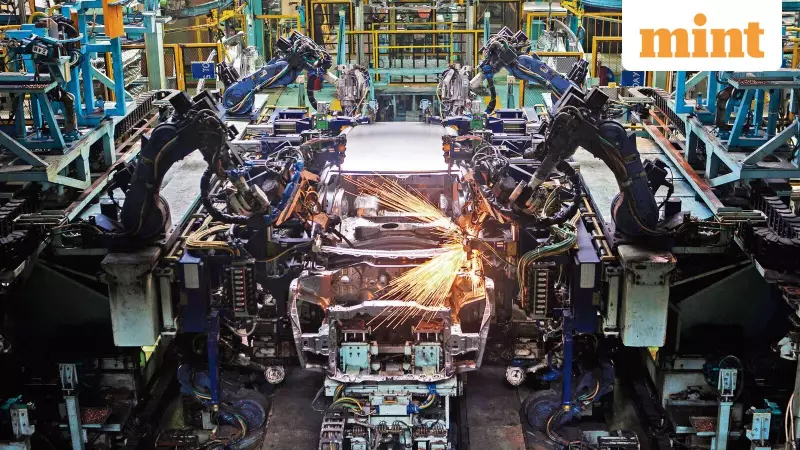
India's Auto Industry Seeks More Leeway in Upcoming Emission Norms
A significant debate has emerged in India's automotive sector regarding the implementation of upcoming emission standards, with automakers and global clean-transport bodies taking opposing positions on the issue of "super credits" for cleaner vehicles. The Society of Indian Automobile Manufacturers (SIAM), representing major car manufacturers, has requested the government to enhance the super-credit value for electric vehicles from three to four vehicles in the final Cafe-III norms.
What Are Super Credits and Why Do They Matter?
Super credits represent a regulatory mechanism that allows automobile companies to count one electric vehicle as three vehicles and one strong hybrid as two vehicles when calculating their corporate average fuel efficiency under the Cafe-III emissions framework. This system was originally designed to assist carmakers in gradually meeting emission targets by incorporating cleaner vehicles into their portfolios.
According to two executives familiar with the ongoing discussions, SIAM submitted its final recommendations to the government earlier this month, requesting that the super-credit value for EVs be increased to four vehicles while maintaining the current value of two vehicles for hybrid vehicles.
Global Watchdogs Raise Serious Concerns
International clean-transport organizations have expressed strong opposition to these proposals, arguing that generous super credits fundamentally weaken India's emissions framework. The Geneva-based International Road Federation and the US-based International Council on Clean Transportation have both warned that such measures could artificially lower a carmaker's average emissions, enabling companies to continue selling high-emitting petrol and diesel models while technically meeting targets through mathematical multipliers.
IRF president K.K. Kapila stated in a November 3 letter: "I am surprised and concerned to learn that automakers are now unitedly lobbying to increase this volume derogation factor from 3 to 4. Furthermore, they are demanding that EVs be treated as consuming 'zero energy', which is impractical and against the basic laws of physics."
Kapila emphasized that this proposal moves India in the opposite direction of global trends, noting that major markets including the United States, European Union, and Japan have recognized that high volume derogations distort the true emissions picture and are insisting on actual CO₂ reduction.
The Technical Impact of Super Credits
The current super credit multiple of three already provides a significant benefit of 15-18 grams in the final emissions calculation for each electric vehicle. If increased to four, as requested by automakers, this benefit would substantially rise to 30-40 grams per EV.
Under the Cafe-III norms, whose latest draft was released in September 2025, automobile companies must adhere to a maximum emission cap of 88.4 CO2g/km by 2027 for their entire vehicle portfolio, with this limit progressively scaling down to 71.5 CO2/g by 2032.
The Bureau of Energy Efficiency introduced super credits as part of these norms to provide some flexibility for carmakers in meeting the increasingly stringent standards. However, critics argue this approach undermines the fundamental purpose of emission regulations.
Previous Warnings and Industry Silence
Concerns about super credits were initially raised by former Niti Aayog chief Amitabh Kant in a September 2024 letter to Tarun Kapoor, advisor to the Prime Minister's Office. Kant had strongly recommended that "BEE must initiate action to remove super credits for various technologies from the proposed Cafe norms, as these currently allow automobile manufacturers to meet efficiency targets without producing adequate clean vehicles."
The International Council on Clean Transportation, in its October 10 recommendation, suggested that regulators should begin phasing out super credits for hybrid vehicles and gradually reduce them for electric vehicles. The organization argued that cutting back super credits would compel carmakers to genuinely improve the fuel efficiency of their internal combustion engine fleet and accelerate authentic EV adoption by making zero-emission vehicles the primary method for companies to meet targets.
Queries sent to SIAM, Amitabh Kant, Tarun Kapoor, and major automobile manufacturers including Tata Motors, Mahindra & Mahindra, and Maruti Suzuki remained unanswered at the time of reporting. IRF did not respond to requests for additional comment, while ICCT declined to comment on internal documents.
The ongoing debate highlights the complex balancing act between supporting industry transition and ensuring meaningful environmental progress as India navigates its path toward cleaner transportation.






